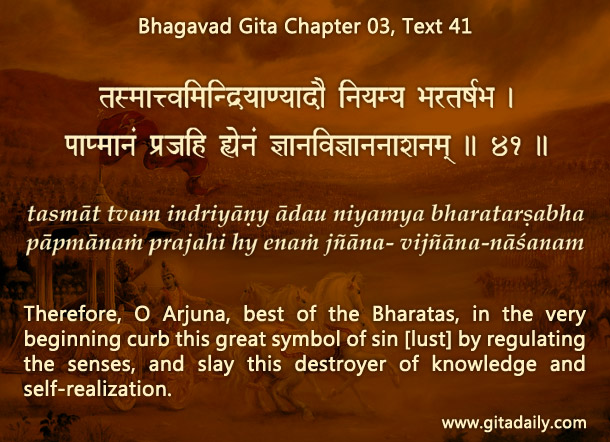Suppose we were organizing a special event at an elite theater. Would we give a free entry pass to everyone wandering around that area? Certainly not; we would carefully select whom to allow entry.
Our consciousness is a similar theater. It is within our consciousness that our individuality, creativity, and spirituality manifest. Should we consider the manifestation of these an elite event? Yes: not in the sense that makes us egoistic, but in the sense that reminds us: the responsibility for manifesting these is first and foremost ours. If we don’t take that responsibility, never will manifest the things that make us, us: never will we be able to pursue our own ultimate good; never will we be able to play our part in furthering the ultimate good of others. Pertinently, the Bhagavad-gita (03.41) urges us to regulate our sensory input.
Our responsibility to shut out the surrounding noise has become all the more critical nowadays. Why? Because our contemporary world is filled with countless temptations and distractions. In our tech-enhanced, corporate-driven world of consumerism, if we let our senses wander here, there, and everywhere, we will unwittingly grant a free entry pass into our consciousness for everything that passes within our sensory range. When the sensory overload outside thus becomes a mental overload inside, we can’t differentiate between the casual and the consequential; we get caught in trivialities; and we end up underperforming, even sabotaging ourselves.
How can we guard our consciousness? By purpose and focus.
Purpose: At the start of a day, we need to invest time in contemplating both the things that matter to us and the reasons those things matter to us. For clarifying and solidifying our purpose, we can equip ourselves with regular Gita study.
Focus: During the course of the day, we can remind ourselves of what we are doing and why. To aid us in such refocusing, we can plan regular breaks for self-awareness: breaks that may involve deep breathing, quick introspection and affirmations.
Being thus empowered by purpose and focus, we can ensure that stimuli in the outer world that are at the periphery of our awareness don’t upstage the things meant to be at center stage in the theater of our consciousness.
Summary:
Don’t let things that pass around our consciousness get a free entry pass into our consciousness.
Think it over.
- Why is our consciousness important? Explain with an analogy.
- What happens when we don’t guard our consciousness?
- What two things can help us guard our consciousness?
***
03.41: Therefore, O Arjuna, best of the Bharatas, in the very beginning curb this great symbol of sin [lust] by regulating the senses, and slay this destroyer of knowledge and self-realization.
Audio explanation of the article is here: https://gitadaily.substack.com/p/a-free-entry-pass-into-our-consciousness
To know more about this verse, please click on the image


Leave A Comment